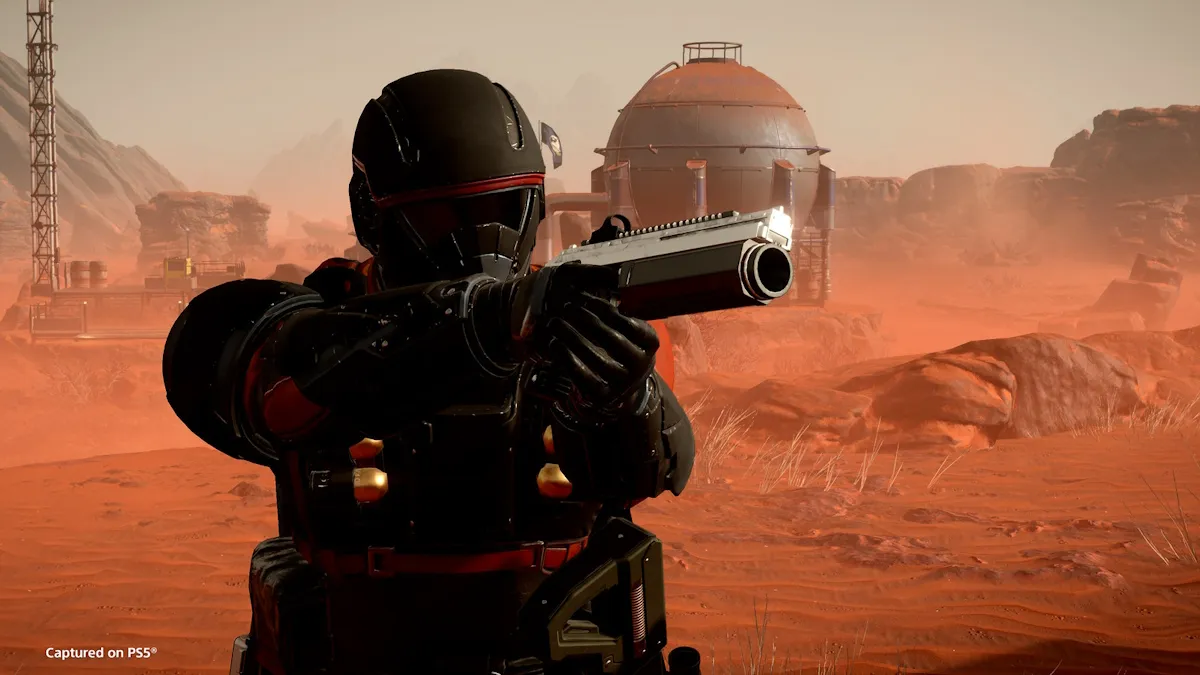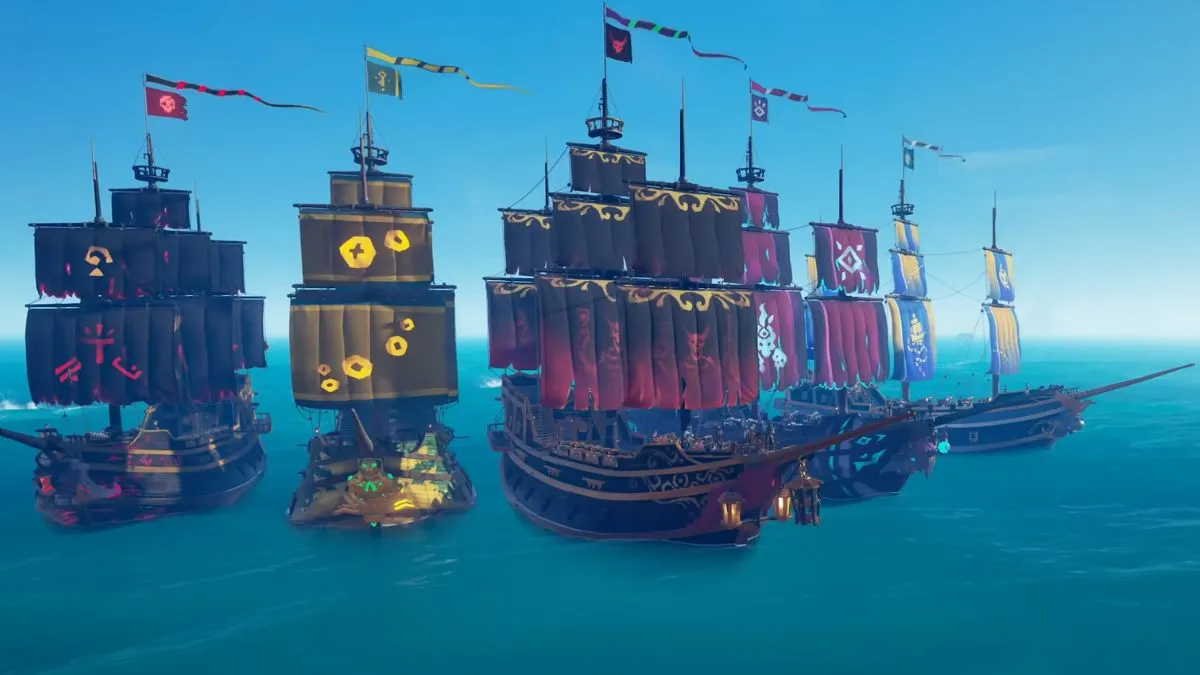Discussing the past, present, and future with CEO Fredrik Wester
Paradox Interactive is best known for their hardcore grand strategy titles on the PC market. Makers of such hits as Crusader Kings, Europa Universalis, Magicka, and many more games, the Sweden-based company celebrated 10 years of independence since splitting off from Paradox Entertainment last month in Miami, Florida.
Made up of seven people in 2004, Paradox now has 120 people working across four different studios, with an additional 150 other people on contract making games externally. The company has blossomed, with continued revenue growth year after year, yet with all that success Paradox has managed to keep their indie spirit and continues to put their fans first when developing games.
I sat down with Paradox Interactive CEO Fredrik Wester at their recent annual showcase to see how Paradox has found success in such a niche market, and where he sees the gaming industry heading towards.

“Overall it was a good year,” Fredrik Wester, CEO of Paradox Interactive told me as we sat by the pool in a Miami hotel. Revenue was up by 35 percent in 2013, with profits over 200 percent. Sure, it’s not Activision money, but for a company of Paradox’s size that’s pretty good. “On the other hand,” Fredrik went on, “it was very uneven when it comes to how products performed. Q1 was a disappointment overall, but Q4 was just fantastic.”
Part of the reason 2013 ended so well was due to the release of Europa Universalis IV. It was their best-selling, and best-scoring title on Metacritic last year, as were its expansions. EU IV has sold over 300,000 units since its August launch, and Fredrik estimates it’ll move another 300,000 to 400,000 by the end of this year.
What was really startling to learn from Fredrik was that the average playtime in Europa Universalis IV is 190 hours. What put Paradox on the map so to speak are hardcore grand strategy titles, which are primarily real-time strategy games that take place on literally a world map. From the outside it’s easy to look in disbelief that people are so into these games.
“Our games are not for everyone,” noted Fredrik during a press conference earlier in the week. “And that’s a statement I’m happy to make. We’re not after the 100 million audience, we’re after the people who want to play our games. Who want to get deeply involved in our games, and engage for hours and hours.”

Paradox is doing great these days, but their start was quite rocky to say the least. Fredrik was in business with publisher Strategy First to put out games, but when that company went bankrupt, and subsequently owed Paradox $300,000, it forcibly pushed Fredrik’s hands into the self-publishing business. This was long before the indie revolution, so it wasn’t quite as simple as it is nowadays.
“We wanted to publish our own games in America. Everyone told us this was impossible to do, so we just had to try it.” They signed a deal with Atari, and their first game out in the States was Crusader Kings. It was six months late, and it had come out one week after Rome: Total War. “It was a big disaster in many ways.”
At around the same time as this Atari deal Paradox had set up an eCommerce website where they sold over 4,000 units of Crusader Kings. “We took two hours after office hours everyday to go pack these games and ship it to everyone. When I look back at these days, this is where we come from as a company. It’s very important to remember that because I was the one actually packing those boxes.”

It was a year later in 2005 with Hearts of Iron II that Paradox Interactive finally had their first major hit. It sold 80,000 units in America, and Fredrik proudly boasted that figure against The Matrix Online, which would end up selling around 25,000 units in America.
“I was going to present this at an Atari sales meeting in Phoenix, Arizona, and just before me on stage was the guys behind The Matrix Online. So they lined up their marketing budget and said ‘We have $5 million in marketing budget. We’re going to spend $2 million on TV, $2 million on print, and $1 million online.’ I had $75,000 in my marketing budget.
“So what I did before I went up on stage was to delete all the numbers and just speak in general terms about how we did marketing and our view of the game. It just shows that marketing budget is not everything. It’s very important to care about your products and make sure you deliver a good product.”

Today, the company’s mission statement is design videogames to fit the “Gamer Lifestyle.” “I want people to feel that the passion that comes from the company to also reach out to the gamers. If we are not passionate about our products how are the gamers supposed to be passionate about [them]?
“We make games for people who identify themselves as gamers. Gaming is an important part of their life … Some people dedicate their life to watching sports, or skydiving, or collecting stamps — people playing Paradox games dedicate their lives partly to playing Paradox games.”
Fred himself plays all the games they publish, with one example being that he’s clocked in over 150 hour of War of the Roses. “Gordon [senior producer on the game] still kicks my ass. So I’m not a very good gamer, but I love it and I play a lot.

The loyalty that Paradox sees with their fanbase makes a lot of sense when Fred talks about what they put into their games. Offering titles that have a lot of value, such as the level of replayability given, along with changing the experience over time with free and paid downloadable content, goes a long way with the player base.
“With our DLC policy, when we create something, for example, Conquest of Paradise which gives you the opportunity of a randomized new world, we give you the update for free. So they get all the fixes, all the extra things within the game, but if they want to unlock the features [such as a new playable faction], you pay for it.
“As the game evolves, Crusader Kings II has been out for almost two years, we’ve developed it so much that it’s almost a totally different experience playing it now compared to playing it two years ago. We do that to a game and people will come play it again. We have in the last 30 days combined for Crusader Kings and Europa Universalis IV, people spent six million hours playing those two games. That’s a lot of hours, [especially] for being niche games.”

From creating worthwhile DLC, to not monetizing on people’s frustrations with their free-to-play initiatives, Paradox has a pretty good mindset when it comes to developing their games. They’ve especially been good about supporting the modding community, and this year they plan to take things a step further by employing one person dedicated to overseeing what the community is putting out with mods.
“We’ve been discussing how can we support the modding community in a better way. The first thing we need to do is just get someone who can dedicate their time and effort to help people out. Asking like what kind of tools do you want, how can we help promote it — coordinate all the efforts that’s done in the modding community.
“We have so many great mods for our games. When Europa Universalis IV was released, after 24 hours we had over 30 mods already in the works that was registered in Steam Workshop.
“If we see a promising mod team now, we would rather fund them fully from start to finish and coach them through the project and make sure the project gets really good.

So what else is on Paradox’s plate for this year? At their annual convention that took place in Miami this year, the company announced their first ever procedurally generated role-playing game, Runemaster, Hearts of Iron IV was revealed, plus we got to see Magicka: Wizard War’s new mode, the Rajas of India expansion for Crusader Kings II, got hands-on with Warlock II: The Exiled, and experienced the latest with War of the Vikings.
Additionally Paradox has a couple of new titles they’ve signed with two “high-profile developers,” which we’ll be learning more about in the coming months. That, and they announced a new studio called Paradox Arctic, home to veterans from DICE and Starbreeze Studios.
So they have a good slate of games coming out this year, but what else is on the horizon? Paradox will be embracing the mobile platform more, and confirmed that they are working on games from their existing and new brands for the new console generation.

Paradox will maintain a strong focus on the PC as they have no intentions of leaving it behind. Plus they’ll be keeping a close eye on how the Steam Box does. That said, the company has opened up to developing on the Xbox One and PlayStation 4 for the same reason they’ve been wild proponents of the PC market.
“We want to do our games on open platforms,” Fredrik told us. “Which means if we want to patch a game, we can patch it. We decide when we patch it, and how we patch it. We don’t need to be charged money to update the game as a service to our gamers. That’s very important to us. We can’t have a platform holder who tells us what to do, and what not to do. We need full freedom on how we connect our gamers on what we deliver.
“There’s going to be a lot of interesting changes. The dominant console makers who used to define the industry are no longer doing that anymore. They kind of figured that out themselves. They’re now more open to content which puts them in a better position than before. They’re starting to source content instead of block content, which they did before. They actually had a gated community where like ‘Okay, you want to publish for console? You have to do these 20 steps first.’ Basically only big companies could do it.
“What we’re seeing is so many different screens that people are gaming on. I don’t really care what machine we’re publishing on as long as we reach our hardcore audience. A lot of people see us as a PC company and the reason for that is that it’s been the simplest and most open platform to actually publish for. We might be a Linux publisher in two years depending on how the Steam Box does. I really hope the Steam Box will be a success.”

This new console generation and the major changes and shakeups happening in the mobile and PC space make it overall hard to predict what lies in the future for the gaming market. Whatever may come, Fredrik believes that keeping the mentality of the indie-minded company will see them ride the waves with whatever changes may arise.
“There’s so many interesting opportunities in the industry. The way I see Paradox is that we still have the mentality of a start-up company. We’re 120 people, another 150 people on contract making games externally, and when we meet for our management meetings, there’s a vibe in there like we can do anything.
“I feel it’s crazy in a way because we never slowed down, sat back, and were happy with what we’re doing … But we’ll see. You still have to be humble about where the industry is going. Better companies than Paradox have fallen. My hope is that we’re going to grow to be three times the size that we are today in five years, but still keep the mentality of the small company that was shipping the Crusader King boxes in 2004, because on the inside, I’m still that guy.”




